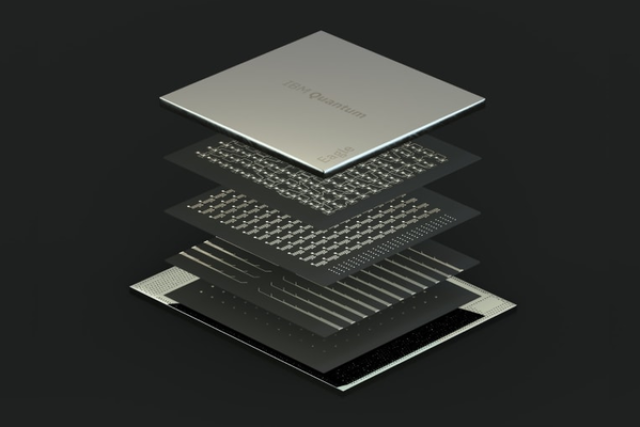IBM has announced that it has developed a new Eagle chip for quantum computing, which, according to the company's management, will allow quantum systems to surpass classical computers in some tasks over the next two years.
IBM said its Eagle computing processor has 127 qubits that can represent information in quantum form. Classical computers work using bits that can have a value of either "1" or "0". Qubits can be both one and zero at the same time. IBM claims that this is the first processor that cannot be modeled by classical supercomputers. It is also stated that the Eagle simulation will require more classical bits than every person on the planet has atoms.
It is worth noting that qubits are quite difficult to manufacture, and for their proper operation, powerful cryogen-based cooling systems are required.
At the same time, the company's engineers stressed that the new chip for quantum computing does not yet claim quantum superiority. However, it is believed that this will be possible in the future.
IBM itself has so far revealed few details about the new product and has not compared it with other systems. IBM said that the new methods it learned during the creation of the Eagle will eventually allow the creation of much more productive chips. The company intends to release Osprey quantum chips with 433 qubits and Condor with 1121 qubits in 2022. IBM is confident that this will bring it closer to the so—called "quantum superiority" - the moment when quantum computers will be able to surpass traditional systems.
Igor Savkin


